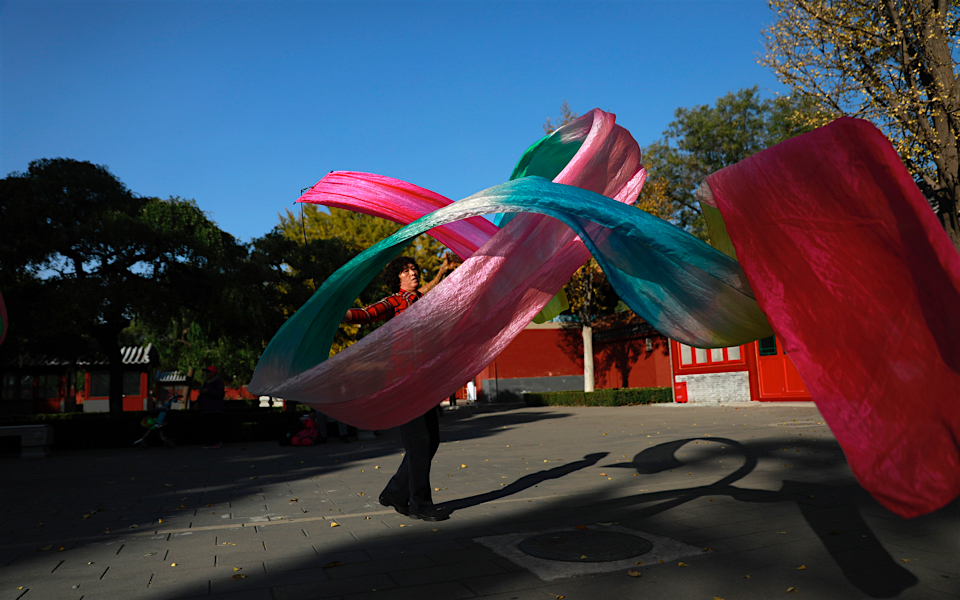China-Greece relations from Old to New Silk Road

One of the earliest trading routes in history, and the one which had the greatest impact on humanity, the Silk Road is one of the strongest cultural connections between China and Greece.
Some 8,000 kilometers link the cradles of Western and Eastern civilization. It was along this route that Genghis Khan arrived in Europe and Alexander the Great headed east, and almost reached the Chinese province of Xinjiang. The Hellenic world and Eastern Europe have carved science, mathematics and Indo-European languages along these tracks, while the Greco-Buddhist syncretism influenced the development of art and philosophy in China and India.
The first major step in opening the Silk Road between the East and the West came with the expansion of Alexander the Great’s empire into Central Asia. For Alexander, as for all ancient Greeks, culture, ideas and opportunities – as well as threats – came from the East. Before long, all the points along the Royal Road that linked the major cities of Persia and the communication network that connected the coast of Asia Minor with Central Asia had been taken. Alexander had an extremely delicate touch when it came to dealing with newly conquered territories and people. He was an energetic founder of new cities, usually named after himself, across Asia. No less impressive was the scale of the legacy Alexander left behind, and how the influences stemming from ancient Greece blended with those of Persia, India, Central Asia and eventually China. The decades that followed Alexander’s death saw a gradual and unmistakable process of Hellenization taking place, as ideas, themes and symbols from ancient Greece were introduced to the East.
There are indications that during the time of the Seleucid Empire expeditions traveled as far as Kashmir in Chinese Turkestan, leading to the first known contacts between China and the West around 200 BC. The theory has been verified archaeologically by the Dunhuang frescoes and the Buddha statues.
Centuries later, in the sixth century AD, two Nestorian monks from Byzantium entered China with the backing of the Emperor Justinian and smuggled fragile silkworm eggs back to Constantinople. This fascinating acquisition represented a technology transfer which endowed the Eastern Roman Empire with a six-century monopoly on European silk, significantly helping to support its economic vibrancy and political supremacy in Western affairs well into the 12th century.
China and Greece were connected by the Silk Road for centuries; however, economic, cultural, educational and research exchanges and tourism have only started to really pick up in the last few years with the development of the bilateral strategic partnership. Today the China-proposed Belt and Road initiative is providing new opportunities for the two countries.
The Belt and Road project entails more than $140 billion in investment which aims to connect more than 20 countries through the construction of new maritime and land infrastructure corridors between China and Europe. A recent study asks whether this ancient cultural bridge might now able to positively impact the eurozone, stimulating the Greek economic recovery at the same. The port of Piraeus is the gateway into Europe for numerous visitors and Greece maintains one of the world’s largest merchant fleets, carrying 60 percent of Chinese exports worldwide.
This particular idea, as Greek President Prokopis Pavlopoulos has underlined, is based both on ancient Chinese philosophy and on the ancient Silk Road, which is characterized by the spirit of peace and mutually beneficial cooperation and at the same time contributes significantly to the development of infrastructure projects, the promotion of trade, economic integration and rapprochement between peoples and societies.
This year marks the 45th anniversary of Greek-Chinese diplomatic relations, while 11 years have passed since the two countries signed their strategic partnership. 2017 is also the Greek-Chinese year of cultural exchanges.
As a result of the Silk Road revival, new forms of cultural-heritage awareness can be built on mutually beneficial activities such as people-to-people bonds, tourism, education, environmental protection, and cultural heritage preservation as China has emphasized the importance it gives to cultural collaboration.
Culture, being today a global economic power, is the epitome of soft power, an intrinsic part of the historical continuity of states and peoples and a timeless link between societies with different characteristics contributing to the promotion of peaceful coexistence and consequently to the consolidation of international peace.
* Sophia Hiniadou Cambanis, is an attorney at law and cultural management adviser. She is head of Cultural Affairs at the Presidency of the Hellenic Republic. This is an extract from a speech by Cambanis at the International Conference on the Construction of the Belt and Road, at Nankai University, Tianjin, China, on July 6, 2017.





